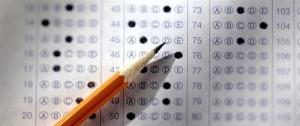Overtesting Students: Some Truths about Standardized Testing
by Tom Martellone • • 0 Comments
Many of us have heard the expression, “Too much of a good thing is bad for you”. It is no wonder that when people, groups, or organizations take things to the extreme, that misconceptions come about. Additionally, not every person is acquainted with every other person’s work. For example, I don’t know everything that a doctor does, so therefore, if the doctor is prescribing a lot of medication to patients, it may or may not be warranted, despite what my perception is around prescribing the medication.
Assessment is no different, and honestly, to some degree, standardized testing has earned itself a bad name. I’m not saying that I am a huge supporter of these types of tests, but with anything, they have their place and I suppose if utilized appropriately, could have some added value. For the general public, there is clearly not enough understanding about the types of assessments that provide educators information about student performance. Perhaps that is the first place to start.
Summative assessments have been likened by some educators, as an “autopsy” because of the finality of their administration and results. These types of tests, like so many high stakes state tests, often times are administered near the end of the year and by the time the results come back, do not offer educators a lot of time to go back and reteach or change instruction. Generally, these tests are for policy makers, who use the results to drive policy. Now, for some districts and states, these tests take up a small amount of time and schools work hard to use the information garnered from them to change instruction for the group that had taken them and also determine what they may do differently regarding instruction for the students coming to them. Other states use as many as 30 days to administer state driven tests, which seems to be the extreme and erodes from the amount of teaching time that classroom teachers have to engage with students.
Formative assessments, on the other hand, are likened to “check ups” because they are periodic, not final in nature, and provide teachers and instructors the opportunity to check in on student understanding and change the nature of their teaching before finally assessing students. They provide more opportunity for teachers to determine where Overtesting Students: Some Truths about Standardized Testing | Connected Principals:

